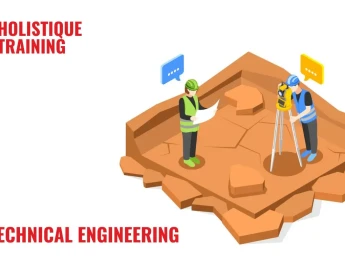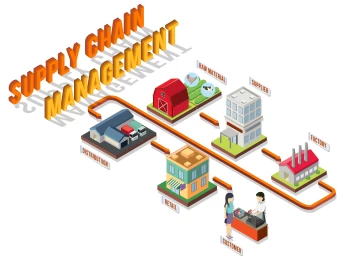- Table of Contents
- Introduction
- What is Geotechnical Engineering?
- Table: Difference between Geotechnical Engineering and Civil Engineering
- The Role of a Geotechnical Engineer
- Site Investigation:
- Foundation Design:
- Slope Stability Analysis:
- Earthworks and Excavations:
- Ground Improvement:
- Risk Assessment and Mitigation:
- Skills You Need to Have as a Geotechnical Engineer
- Analytical Skills:
- Problem-Solving Skills:
- Technical Proficiency:
- Attention to Detail:
- Communication Skills:
- Project Management Skills:
- Teamwork and Collaboration:
- The Importance of Geotechnical Engineering
- Ensuring Structural Integrity
- Mitigating Natural Hazards
- Environmental Protection
- Economic Efficiency
- Supporting Infrastructure Development
- Advancing Technological Innovation
- Contributing to Sustainable Development
- Enhancing Public Safety
- Finding the Right Geotechnical Engineering Company
- Reputation and Experience:
- Technical Expertise:
- Range of Services:
- Innovative Solutions:
- Quality Assurance and Control:
- Communication and Collaboration:
- Project Management Skills:
- Safety Record:
- Cost-Effectiveness:
- Client References and Testimonials:
- Requirements to Become a Geotechnical Engineer
- Educational Requirements:
- Advanced Education:
- Licensing and Certification:
- Practical Experience:
- Continuing Education:
- Professional Organisations:
- Soft Skills Development:
- Conclusion
Introduction
The ground beneath our feet is more than just a solid base for our daily activities; it is a complex and dynamic system that significantly influences the safety and stability of the structures we rely on. From towering skyscrapers to expansive bridges, the stability of these constructions hinges on a profound understanding of the earth's materials. Geotechnical engineering, a specialised branch of civil engineering, delves into the intricacies of soil and rock behaviour to design and construct foundations that withstand the test of time and nature. This field ensures that buildings and infrastructure are secure and is crucial in mitigating risks associated with natural hazards. This blog post will explore the fascinating world of geotechnical engineering, examining its core principles, the vital role of geotechnical engineers, and the essential skills and qualifications needed to thrive in this profession.
What is Geotechnical Engineering?
Geotechnical engineering is a branch of civil engineering concerned with the behaviour of earth materials. This field involves the study of soil and rock mechanics to determine their properties and how they interact with structures built upon or within them. Geotechnical engineering mainly ensures that foundations, retaining structures, and other systems are safe and efficient. This discipline encompasses a variety of projects, including the construction of buildings, bridges, dams, tunnels, and highways.
Geotechnical engineers play a crucial role in the design and construction process. They conduct site investigations to analyse soil and rock properties, evaluate risks related to natural hazards such as landslides and earthquakes, and develop appropriate foundation designs. By understanding a site's geological conditions, geotechnical engineers can predict how these conditions will impact the stability and safety of structures.
Geotechnical Engineering | Civil Engineering |
Focuses on soil and rock behaviour | Broad field covering various aspects |
Design foundations and slopes | Design infrastructure and public works |
Analyses geological risks | Plans and manages urban development |
Applies soil mechanics principles | Considers environmental and societal impacts |
Ensures stability of structures | Includes structural analysis and design |
Table: Difference between Geotechnical Engineering and Civil Engineering
The Role of a Geotechnical Engineer
The role of a geotechnical engineer is diverse and multifaceted. Their primary responsibility is to ensure that structures are built on stable ground, which involves:
Site Investigation
Conducting thorough investigations to assess a construction site's soil and rock conditions is the cornerstone of geotechnical engineering. This process involves drilling boreholes to significant depths, collecting soil and rock samples, and performing a series of laboratory tests to determine their physical and mechanical properties. These tests measure attributes such as soil strength, compressibility, permeability, and grain size distribution. Geotechnical engineers also conduct in-situ tests, like the Standard Penetration Test (SPT) and Cone Penetration Test (CPT), to gain real-time insights into the subsurface conditions. These investigations are crucial for developing an accurate geotechnical model of the site, which is the foundation for all subsequent design and construction activities.
Foundation Design
Designing foundations that can safely support the loads imposed by structures is a primary responsibility of geotechnical engineers. They must choose the appropriate type of foundation, whether it be shallow foundations, such as spread footings and mat foundations, or deep foundations, like driven piles and drilled shafts. The choice depends on the soil conditions, the load characteristics of the structure, and the potential for settlement or other ground movements. Geotechnical engineers use their expertise to ensure that the foundations are designed to distribute loads effectively, prevent excessive settlement, and resist potential lateral forces such as those from wind or earthquakes. They also collaborate with structural engineers to integrate foundation designs with the overall structural system of the project.
Slope Stability Analysis
Evaluating the stability of natural and man-made slopes is critical for geotechnical engineering to prevent landslides and slope failures. This involves analysing the geometry, material properties, and groundwater conditions of slopes to identify potential failure mechanisms. Geotechnical engineers use various analytical methods, such as limit equilibrium analysis, finite element modelling, and probabilistic approaches, to assess slope stability. They also design stabilisation measures, including retaining walls, soil nailing, geosynthetic reinforcement, drainage systems, and vegetation cover. These measures are designed to enhance the shear strength of the soil, reduce pore water pressures, and manage surface water runoff.
Earthworks and Excavations
Planning and supervising earthworks and excavations are essential to ensure they are carried out safely and efficiently. Geotechnical engineers determine the appropriate methods for soil excavation, handling, and compaction based on the type of soil and project requirements. They assess the potential for issues such as ground settlement, soil erosion, and slope instability during and after excavation. Engineers also design temporary and permanent support systems, like shoring and bracing, to stabilise excavation sites and prevent collapses. Proper planning and execution of earthworks are vital for maintaining the integrity of construction sites and surrounding areas.
Ground Improvement
Developing techniques to improve soil and rock properties is another crucial responsibility of geotechnical engineers. Ground improvement methods are employed to enhance the load-bearing capacity, reduce settlement, and increase the stability of the soil. Common techniques include compaction, which densifies loose soils; grouting, which injects cementitious or chemical materials to fill voids and increase strength; and the use of geosynthetics, such as geotextiles and geomembranes, to reinforce soil and control drainage. Geotechnical engineers must carefully select and design these techniques to suit each project's specific conditions and requirements, ensuring that the ground is adequately prepared for construction.
Risk Assessment and Mitigation
Assessing risks associated with geotechnical hazards is a critical task for geotechnical engineers. They evaluate the potential impact of natural hazards on construction projects, such as earthquakes, landslides, and soil liquefaction. This involves conducting hazard assessments, modelling potential scenarios, and developing mitigation strategies to reduce risks. Geotechnical engineers design solutions such as seismic retrofitting, slope stabilisation measures, and ground improvement techniques to enhance the resilience of structures. They also collaborate with other professionals, like seismologists and environmental engineers, to develop comprehensive risk management plans that protect lives and property.
Geotechnical engineers ensure structures are built on stable and safe ground. Their expertise in site investigation, foundation design, slope stability analysis, earthworks, ground improvement, and risk assessment is essential for successful construction projects. By understanding and managing the behaviour of earth materials, geotechnical engineers contribute to developing safe, efficient, and sustainable infrastructure.
Skills You Need to Have as a Geotechnical Engineer
Becoming a successful geotechnical engineer requires a combination of technical knowledge, practical skills, and personal attributes. Here are some key skills and qualities essential for geotechnical engineers:
Analytical Skills
Geotechnical engineers must possess strong analytical skills to interpret complex data from site investigations, laboratory tests, and computer models. This involves examining soil and rock samples, understanding their properties, and predicting their behaviour under various conditions. Engineers use mathematical and statistical methods to analyse data and develop models that simulate real-world scenarios. These skills enable them to make informed decisions about foundation design, slope stability, and other geotechnical challenges. Additionally, they must be adept at identifying patterns and trends in data, which can reveal potential issues and guide the development of effective solutions.
Problem-Solving Skills
The ability to identify and solve problems is critical in geotechnical engineering. Engineers often encounter unexpected challenges related to soil conditions, groundwater levels, and environmental factors. They must develop innovative solutions to address these issues and ensure the stability and safety of structures. This requires a creative and flexible approach and a deep understanding of geotechnical principles. Problem-solving skills also involve evaluating different design options, assessing their feasibility, and selecting the most effective and cost-efficient solution. Geotechnical engineers must be able to think critically and logically to overcome obstacles and achieve project goals.
Technical Proficiency
A strong foundation in technical knowledge is essential for geotechnical engineers. This includes soil and rock mechanics, foundation engineering, and geotechnical analysis expertise. Engineers must be proficient in using specialised software and tools for modelling and analysis, such as finite element analysis programs and geotechnical design software. Technical proficiency also involves understanding construction methods, material properties, and industry standards. Geotechnical engineers must stay updated with the latest technological advancements and best practices to ensure their designs are accurate, efficient, and compliant with regulations.
Attention to Detail
Precision is crucial in geotechnical engineering, as small errors can lead to significant consequences. Engineers must pay close attention to detail when conducting site investigations, analysing data, and designing foundations. This involves meticulously recording observations, measurements, and test results and ensuring that all calculations are accurate. Attention to detail also means thoroughly reviewing design plans and specifications to identify potential issues before construction begins. By maintaining a high level of accuracy and diligence, geotechnical engineers can prevent costly mistakes and ensure the safety and stability of structures.
Communication Skills
Effective communication is vital for geotechnical engineers to convey complex technical information to clients, contractors, and other stakeholders. This includes writing clear and concise reports summarising findings, presenting design recommendations, and outlining construction guidelines. Engineers must also be able to explain technical concepts in a way that non-specialists can understand, which is essential for securing project approvals and funding. Strong communication skills are also important for presenting findings and recommendations to project teams, leading meetings, and collaborating with other professionals. Geotechnical engineers must be able to listen actively, ask insightful questions, and provide clear and constructive feedback.
Project Management Skills
Geotechnical engineers often manage multiple projects simultaneously, requiring strong organisational and time management skills. They must be able to plan and coordinate site investigations, design work, and construction activities to ensure projects are completed on time and within budget. Project management skills involve developing detailed project plans, setting realistic timelines, and allocating resources efficiently. Engineers must also be able to monitor project progress, identify potential delays, and implement corrective actions as needed. Effective project management ensures that all project aspects are aligned and the goals are achieved successfully.
Teamwork and Collaboration:
Geotechnical engineering projects often involve working with a diverse team of professionals, including civil engineers, architects, environmental scientists, and construction managers. The ability to collaborate effectively and work as part of a team is essential. This involves sharing knowledge and expertise, contributing to team discussions, and supporting colleagues in achieving project objectives. Engineers must also be able to build strong working relationships based on trust and mutual respect. Geotechnical engineers can enhance their projects' overall quality and efficiency by fostering a collaborative and inclusive work environment.
Developing and honing these skills is essential for a successful career in geotechnical engineering. By combining technical proficiency with strong analytical, problem-solving, and communication abilities, geotechnical engineers can effectively address the challenges of their field and contribute to the development of safe and sustainable infrastructure.
The Importance of Geotechnical Engineering
Geotechnical engineering is fundamental to the success of many construction projects and plays a vital role in ensuring the safety and stability of structures. Here are some reasons why geotechnical engineering is important:
Ensuring Structural Integrity
One of the primary responsibilities of geotechnical engineering is to ensure the structural integrity of buildings and infrastructure. The stability and safety of any structure start with a solid foundation, and geotechnical engineers are experts in understanding and designing these foundations based on the properties of the underlying soil and rock. They assess the load-bearing capacity of the ground, predict potential settlement, and design foundations that can support the structure’s weight while resisting environmental forces such as earthquakes and wind. By doing so, geotechnical engineers prevent structural failures that could lead to catastrophic consequences, safeguarding lives and properties.
Mitigating Natural Hazards
Geotechnical engineers are vital in assessing and mitigating natural hazards like landslides, earthquakes, and soil liquefaction. By conducting thorough site investigations and analysing geotechnical data, they can identify areas prone to these hazards and develop strategies to mitigate their impact. This includes designing slope stabilisation measures, implementing ground improvement techniques, and recommending appropriate construction practices to reduce the risk of landslides. In earthquake-prone regions, geotechnical engineers design foundations that can withstand seismic forces, thereby enhancing the resilience of structures. Their work is critical in reducing the vulnerability of communities to natural disasters and ensuring the long-term safety and stability of infrastructure.
Environmental Protection
Geotechnical engineering is essential for environmental protection and sustainable development. Geotechnical engineers assess the impact of construction activities on the surrounding environment and develop strategies to minimise adverse effects. This includes designing systems for managing groundwater flow, controlling soil erosion, and preventing contamination of soil and water resources. They also work on projects such as landfill design, remediation of contaminated sites, and construction of environmentally sensitive structures, ensuring that development is carried out in an environmentally responsible manner. By integrating environmental considerations into their designs, geotechnical engineers contribute to preserving natural resources and protecting ecosystems.
Economic Efficiency
Effective geotechnical engineering contributes to the economic efficiency of construction projects. By accurately assessing soil and rock conditions, geotechnical engineers provide critical information about the design and construction process. This helps avoid costly surprises during construction, such as unexpected ground conditions that could require redesign or additional stabilisation measures. Geotechnical engineers also optimise foundation designs to use materials and resources efficiently, reducing construction costs while ensuring safety and stability. Furthermore, their expertise in ground improvement techniques can enhance the usability of sites with poor soil conditions, expanding the range of viable locations for development and maximising the economic potential of the land.
Supporting Infrastructure Development
Geotechnical engineering is fundamental to developing infrastructure projects, including roads, bridges, tunnels, dams, and airports. These projects often involve complex geotechnical challenges requiring specialised knowledge and skills. Geotechnical engineers conduct detailed site investigations, analyse subsurface conditions, and design foundations and earthworks that ensure the stability and longevity of infrastructure. Their work is crucial in the planning and executing these projects, ensuring that they meet safety standards and perform as intended over their lifespan. Geotechnical engineers contribute to communities' economic growth and social well-being by supporting infrastructure development.
Advancing Technological Innovation
Geotechnical engineering is at the forefront of technological innovation in the construction industry. Advances in geotechnical engineering research and practice have led to the development of new materials, techniques, and tools that enhance the efficiency and effectiveness of geotechnical solutions. For example, the use of geosynthetics in soil reinforcement and erosion control, the application of advanced numerical modelling for complex geotechnical analyses, and the implementation of real-time monitoring systems for construction sites are all innovations driven by geotechnical engineering. These advancements improve the accuracy of geotechnical designs, reduce construction risks, and contribute to the development of safer and more sustainable infrastructure.
Contributing to Sustainable Development
Geotechnical engineering significantly promotes sustainable development by ensuring that construction practices are environmentally responsible and resource-efficient. Geotechnical engineers develop solutions that minimise the environmental impact of construction activities, such as reducing soil erosion, managing stormwater runoff, and protecting groundwater resources. They also design foundations and earthworks that optimise the use of materials and energy, contributing to the sustainability of construction projects. By integrating sustainability principles into their work, geotechnical engineers help create infrastructure that meets the needs of the present without compromising the ability of future generations to meet their own needs.
Enhancing Public Safety
Public safety is a paramount concern in geotechnical engineering. Geotechnical engineers are responsible for identifying and mitigating potential hazards that could pose risks to the public, such as unstable slopes, landslide-prone areas, and regions susceptible to seismic activity. Conducting thorough geotechnical investigations and implementing appropriate design measures ensures that infrastructure is built on stable ground and can withstand environmental forces. This protects the users of these structures and enhances the overall safety and resilience of communities.
Geotechnical engineering is indispensable for our built environment's successful and sustainable development. Geotechnical engineers play a vital role in creating safe, stable, and resilient structures by ensuring structural integrity, mitigating natural hazards, protecting the environment, and supporting infrastructure development. Their expertise and dedication contribute to the economic efficiency and sustainability of construction projects, ultimately enhancing the quality of life for communities worldwide.
Finding the Right Geotechnical Engineering Company
Selecting the right geotechnical engineering company is crucial for the success of your project. Here are some factors to consider when choosing a geotechnical engineering firm:
Reputation and Experience
The reputation and experience of a geotechnical engineering company are essential indicators of its reliability and expertise. Look for a firm with a proven track record of successfully completing projects similar to yours. This includes examining their portfolio and case studies to understand the scope and complexity of the projects they have handled. An experienced company will have encountered a wide range of geotechnical challenges and developed effective solutions, giving you confidence in their ability to address your specific needs. Additionally, consider seeking recommendations from industry peers or reading online reviews to gauge the company’s reputation within the industry.
Technical Expertise
Geotechnical engineering is a highly specialised field that requires in-depth technical knowledge and expertise. Ensure that your chosen company has a team of qualified geotechnical engineers with the necessary credentials and certifications. This includes verifying their educational background, professional licences, and memberships in relevant industry associations. A company with a diverse team of experts can provide comprehensive geotechnical services, including site investigations, soil testing, foundation design, and slope stability analysis. Moreover, inquire about their familiarity with the latest geotechnical software and technology, as this can enhance the accuracy and efficiency of their work.
Range of Services
The scope of services offered by a geotechnical engineering company should align with the specific requirements of your project. Some firms specialise in particular areas, such as foundation design, environmental geotechnics, or ground improvement, while others offer a broader range of services. Assess your project’s needs and ensure that your chosen company can provide all the necessary geotechnical services, from initial site investigations to construction monitoring. A full-service firm can streamline the project by offering a cohesive approach and reducing the need for multiple subcontractors.
Innovative Solutions
The ability to develop innovative solutions is a valuable attribute in a geotechnical engineering company. Geotechnical challenges often require creative and tailored approaches to achieve optimal results. Ask potential firms about their problem-solving methodology and examples of innovative solutions they have implemented in past projects. This might include the use of advanced ground improvement techniques, the application of cutting-edge technology, or the development of custom foundation designs. A company that demonstrates innovation can offer more effective and efficient solutions, potentially saving time and resources.
Quality Assurance and Control
Quality assurance and control are critical in geotechnical engineering to ensure that all work meets industry standards and project specifications. Inquire about the company’s quality management system and how they ensure the accuracy and reliability of their data and designs. A reputable firm will have established procedures for conducting thorough site investigations, performing accurate laboratory tests, and verifying design calculations. Additionally, ask about their approach to ongoing quality control during construction, such as monitoring foundation installation and conducting field tests. A strong commitment to quality ensures that the project will be completed to the highest safety and performance standards.
Communication and Collaboration
Effective communication and collaboration are essential for successfully executing any construction project. The geotechnical engineering company you choose should be able to clearly convey technical information and provide regular updates on project progress. Evaluate their responsiveness and willingness to engage in open dialogue, which can significantly impact project outcomes. A firm that values collaboration will work closely with other stakeholders, including architects, structural engineers, and contractors, to ensure that all aspects of the project are aligned. This collaborative approach fosters a seamless integration of geotechnical designs with the overall project plan.
Project Management Skills
Strong project management skills ensure that geotechnical engineering tasks are completed on time and within budget. Ask potential firms about their project management approach and how they handle scheduling, resource allocation, and risk management. A company with effective project management practices can anticipate and address potential issues before they escalate, ensuring the project stays on track. Additionally, inquire about their experience managing projects of similar size and complexity to gauge their ability to handle your specific requirements.
Safety Record
Safety is paramount in geotechnical engineering, as it involves working in potentially hazardous environments. Investigate the company’s safety record and its commitment to maintaining a safe work environment. This includes reviewing their safety policies, training programs, and incident history. A firm with a strong safety culture will prioritise the well-being of its employees and clients, reducing the risk of accidents and ensuring that all work is conducted safely and controlled.
Cost-Effectiveness
While cost should not be the sole determining factor, finding a geotechnical engineering company that offers cost-effective solutions is important. Request detailed proposals and compare multiple firms' scope of work, methodologies, and pricing. A reputable company will provide transparent and competitive pricing, clearly outlining the costs associated with each project phase. Be cautious of significantly lower bids, as they may indicate a lack of experience or a compromise on quality. Instead, focus on finding a firm that offers the best value for your investment, balancing cost with the quality and comprehensiveness of their services.
Client References and Testimonials
Client references and testimonials provide valuable insights into a geotechnical engineering company’s performance and reliability. Ask potential firms for references from previous clients and take the time to contact them. Inquire about their experience working with the company, the quality of the services provided, and the outcomes of their projects. Positive testimonials and satisfied clients indicate a company’s ability to deliver high-quality geotechnical engineering services. Additionally, consider looking for case studies or project summaries on the company’s website to assess their expertise and capabilities further.
Selecting the right geotechnical engineering company is a critical decision that can significantly impact the success of your construction project. You can make an informed choice by carefully evaluating their reputation, technical expertise, range of services, innovative solutions, quality assurance practices, communication skills, project management capabilities, safety records, cost-effectiveness, and client references. A reliable and experienced geotechnical engineering firm will provide the expertise and support needed to navigate the complexities of geotechnical challenges, ensuring your project's stability, safety, and success.
Requirements to Become a Geotechnical Engineer
Becoming a geotechnical engineer requires a combination of education, training, and practical experience. Here are the key steps to pursue a career in geotechnical engineering:
Educational Requirements
Obtain a bachelor's degree in civil engineering, geotechnical engineering, or a related field. Coursework typically includes subjects such as soil mechanics, rock mechanics, foundation engineering, and geology.
Advanced Education
Consider pursuing a master's degree in geotechnical engineering to gain specialised knowledge and enhance your career prospects. Some positions may require advanced degrees for higher-level responsibilities.
Licensing and Certification
Obtain a professional engineering (PE) licence, which is required for most geotechnical engineering positions. The licensing process typically involves passing the Fundamentals of Engineering (FE) exam, gaining relevant work experience, and passing the Principles and Practice of Engineering (PE) exam.
Practical Experience
Gain practical experience through internships, co-op programs, or entry-level positions in geotechnical engineering firms. Hands-on experience is essential for developing the skills and knowledge needed for a successful career.
Continuing Education
Stay updated with the latest developments in geotechnical engineering by participating in continuing education programs, attending conferences, and joining professional organisations. This helps you stay current with industry trends and advances in technology.
Professional Organisations
Join professional organisations such as the American Society of Civil Engineers (ASCE) or the International Society for Soil Mechanics and Geotechnical Engineering (ISSMGE). Membership provides access to resources, networking opportunities, and professional development programs.
Soft Skills Development
Develop essential soft skills such as communication, teamwork, and project management. These skills are important for collaborating with colleagues, clients, and other stakeholders and for successfully managing projects.
Becoming a geotechnical engineer involves a combination of education, practical experience, technical skills, and professional credentials. A strong educational background, hands-on experience, and continuous learning prepare aspiring engineers to tackle the complex challenges of geotechnical projects. By meeting these requirements, geotechnical engineers can contribute to the safe, stable, and sustainable development of our built environment.
Conclusion
Geotechnical engineering is a vital field that ensures the stability and safety of structures by understanding and managing the behaviour of earth materials. Geotechnical engineers play a critical role in designing and constructing foundations, slopes, and other systems, contributing to the development of safe and efficient infrastructure. The importance of geotechnical engineering cannot be overstated, as it impacts everything from the stability of buildings to the safety of transportation networks. Geotechnical engineers help prevent structural failures, minimise risks, and promote sustainable development by ensuring that ground conditions are thoroughly analysed and understood. Their expertise addresses the challenges of varying soil and rock conditions, seismic activity, and other geotechnical hazards.
If you're looking to expand your knowledge and skills in related fields, consider enrolling in our course on "Construction Site Management/Supervision." This course will equip you with the essential tools and techniques to effectively oversee construction projects, ensuring they are completed safely, on time, and within budget. Whether you are an aspiring professional or seeking to enhance your current expertise, this course offers valuable insights into the intricacies of construction site management.

























